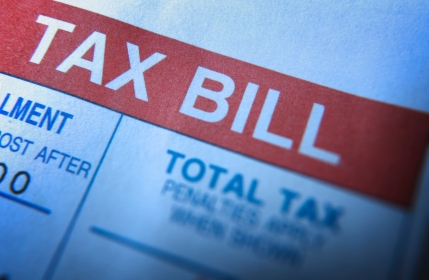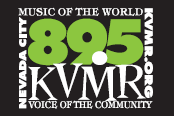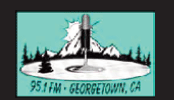
Money Matters Update Feb 18, 2015
Money Matters Airs tomorrow!
Thursday NOON Pacific Standard Time
Tune in!
Gold and Silver:
These took off on the news from the SNB and they had been in a steady and stealthy rise leading up to the events of last week. They have pulled back from the recent run so let us see if this new fall is a temporary set back or a temporary correction only.
Those wishing to add gold and silver for insurance can use the many gold and silver equities at this time. I just put out a GOLD LIST of gold stocks I bought or plan to buy soon. You can get it FREE by signing up for a 2 year subscription to the website Moneymanagementradio.com. I GIVE you the 3rd year FREE and the Gold list, the Super Dividend Payers List, the Dream Portfolio AND the Conservative Portfolio AND all the shows! Great deal so hop on it!
Of course gold and silver could fall again if things settle down and no one can say for certain which way markets will go but the problems in the Euro and the SNB move has caused an interest in these metals. If the Euro problem intensifies gold and silver could turn out to be sought after as a place of refuge.
Watching the market so you don’t have to,
Marc
New updates on my Dream Portfolio and Conservative Portfolio as of 2015!
Download now to know what to do! It is more important than ever now!
Also a Money Class coming. Email me for a discount ticket and questions on the class!
-------------------------------------------------------------------------------------

The history of our federal income taxes is convoluted at best and a quick summation of its inception tells us that although federal income tax was ruled unconstitutional by the Supreme Court in 1895 the government persisted until the 16th amendment was enacted in 1913 allowing the collection of what we now know as our federal income taxes.
The effective rate (adjusted for inflation) back then was 1% for incomes up to $475,000.00. Compare that to today’s rate of roughly 30% for the same income. The highest bracket, 7 percent, kicked in on income over $500,000 – equivalent to about $11.6 million in today's dollars. In 1913,totaled just 400 pages; today, the CCH Standard Federal Tax Reporter, which includes the tax code and analysis, has reached 73,954 pagestotaled just 400 pages; today, the CCH Standard Federal Tax Reporter, which includes the tax code and analysis, has reached 73,954 pagestotaled just 400 pages; today, the CCH Standard Federal Tax Reporter, which includes the tax code and analysis, has reached 73,954 pagestotaled just 400 pages; today, the CCH Standard Federal Tax Reporter, which includes the tax code and analysis, has reached 73,954 pages
Despite the obvious direction taxes have taken over the decades, some people just keep voting for more taxes.
Berkeley voted in a tax on soda and a city near me voted to tax campers at local campgrounds.
Berkeley constituents who supported the tax amounted to nearly three quarters of those voting and the campground tax was unanimously supported by all members of the city council.
Let’s see now, we get up from our bed which we paid tax on, and hit the alarm clock which we also paid a tax on, step on our taxed carpet attached to the house we paid tax on and turn on the water and flush the toilet which is also taxed. We turn on the heat which has its own tax on the fuel it uses, and fix breakfast using appliances that were also taxed.
We dress, shave and use hair spray of which all had a tax, then get in our car that had a sales tax, a registration fee and yearly tax. If it’s a foreign car we own, we also paid more for it because of the tariff taxes.
We close the electric garage door which was taxed when we bought it and then pay tax on the electricity to activate the darn thing.
We drive down the road paying a road tax and gasoline tax and go to work where we pay income tax on what we earn. We then pay a variety of taxes to support people that don’t work, then pay a social security deduction (of which the government told us would be saved but is now replaced with IOUs) and incur even more taxes levied by the city, county and state we happen to live and work in.
Our investments have taxes of all sorts on them and we basically pay taxes on just about everything we do, buy or use.
We also pay taxes on your home phone, our internet usage and television through a plethora of cable and communication taxes.
We even pay taxes on the air we breathe and water we drink through clean air levies and water taxes on property bills and through a variety of corporate taxes that they pay to the EPA to keep things clean.
We eventually get tired of working to pay all those taxes so we call up our travel agent on our cell phone which was taxed when we bought it and is taxed monthly and also when we use the thing.
We decide to fly somewhere for our vacation and then pay an airport tax, a parking tax and our flight is also taxed.
The hotel we stay in taxes us and the boat trip we might take to go fishing then hits us up for its own special fuel surcharge tax.
All the things we buy are taxed by the truck, plane or train that delivered all our stuff and then when we have a heart attack because of all the taxes we paid, the hospital taxes us for the pacemaker we need through a special medical device tax.
If we die, whatever money we might have left over is taxed again when our kids inherit it.
Now with all those taxes we pay (not counting the taxes I forgot to mention in this news piece because listing them all would have taken hours), some people still vote for even more taxes.
Now I ask you, is it me that’s crazy for shouting no more taxes or are the people that vote for more taxes the crazy ones?
I really don’t know anymore but one thing I do know, this whole tax thing is very taxing.
This article expresses the opinions of Marc Cuniberti. Mr. Cuniberti hosts “Money Matters” on KVMR FM 89.5 and 105.1 FM on Thursdays at noon and syndicated on over 35 radio stations throughout the US and Canada. He has been featured on NBC and ABC television and on a host of made for TV documentaries for his economic insights. His website is www.moneymanagementradio.com.







